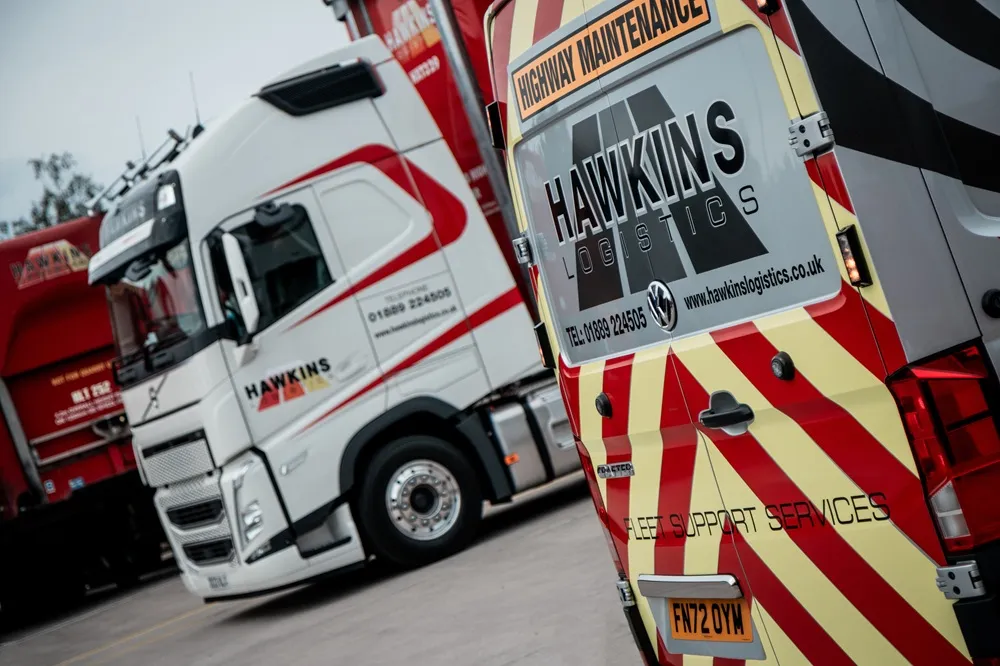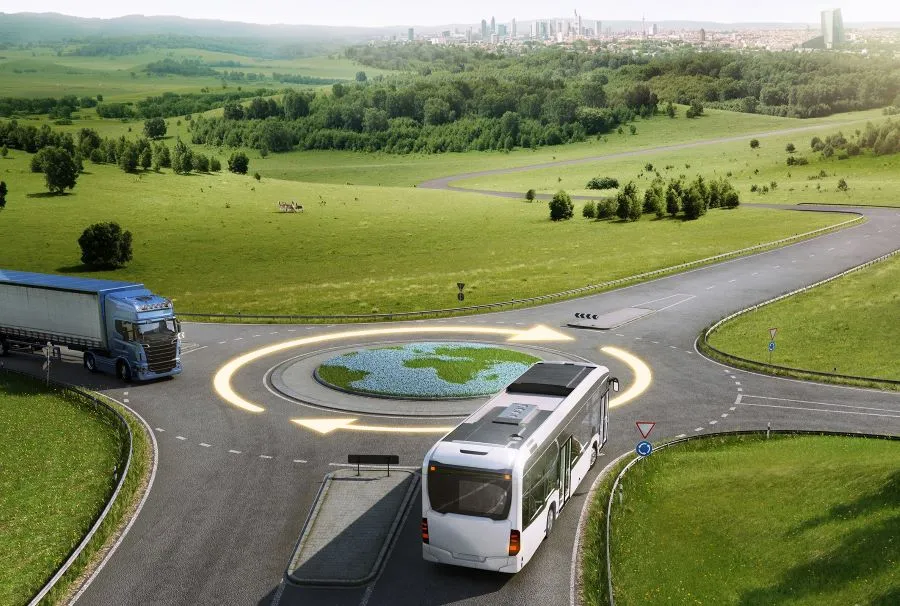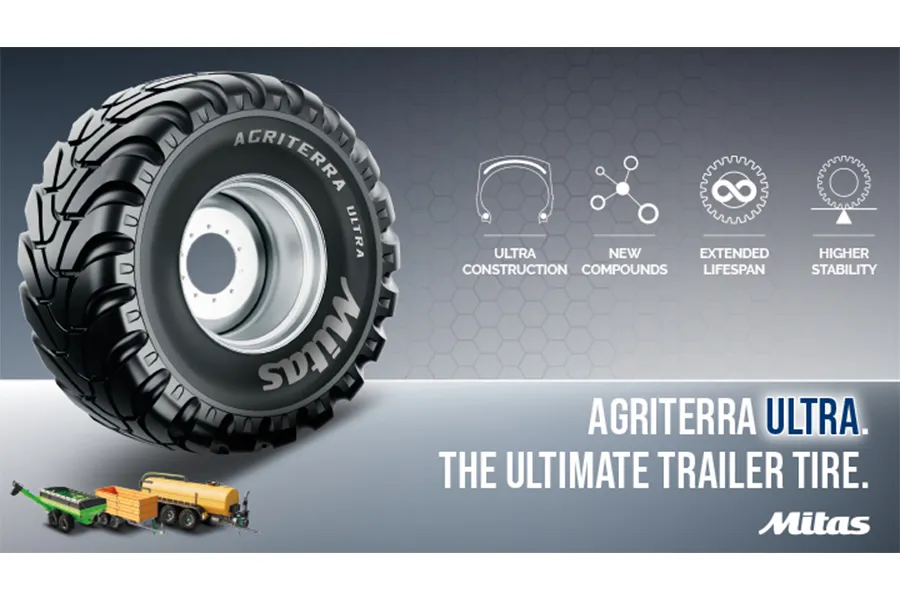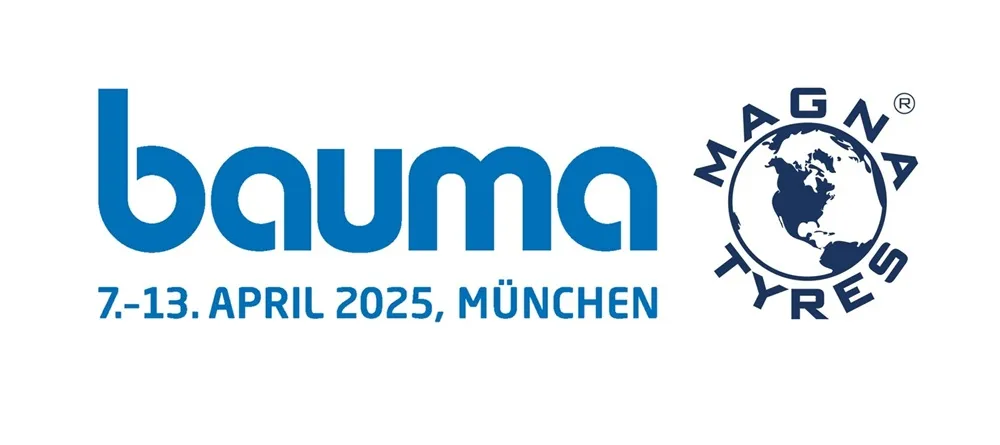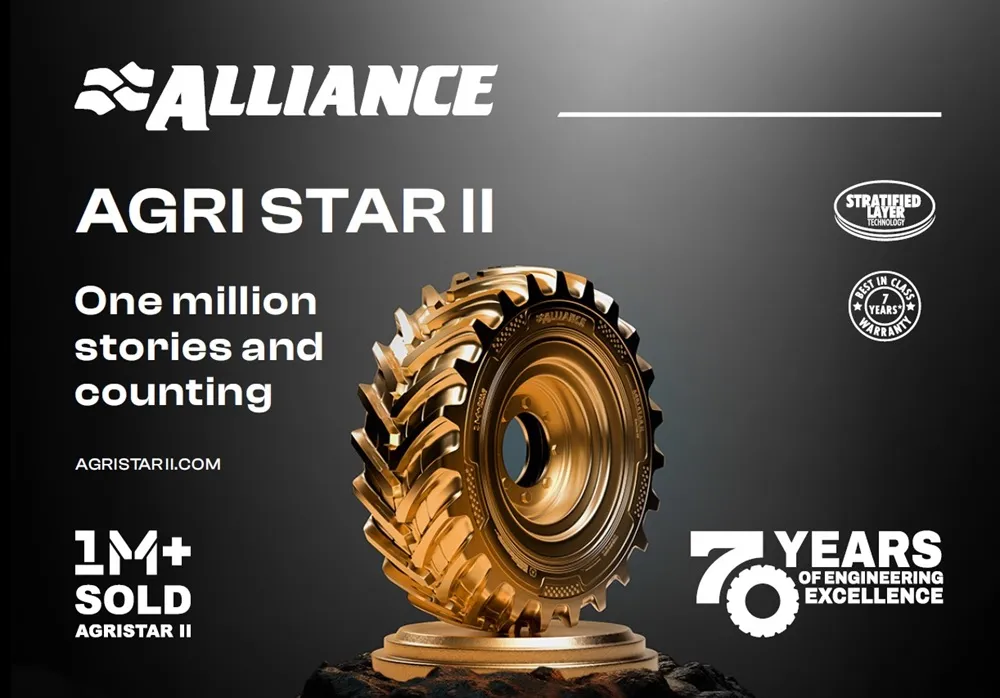Apollo Guido Boerkamp, Director Off-Highway Tyres Europe at Apollo Tyres discussed Vredestein agricultural tyres with Commercial Tyre Business
Apollo places Vredestein VF technology as a keystone product in the ag market
When it comes to tyre requirements, the agricultural market has a very diverse range of needs. For example, arable farmers need tyres that provide traction in challenging conditions while at the same time distributing weight across a large footprint to minimise soil compaction. By contrast, livestock farmers are likely to tackle more challenging terrain and require road transportation.
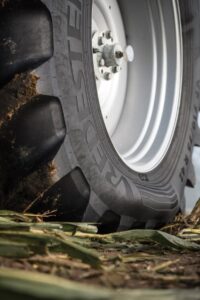
Boerkamp explains; “Across all applications, terrain, road use and soil condition can play a vital role in the choice of tyres and pressure settings. If a field has soft or muddy soil, a tread design with good self-cleaning properties and the ability to drive a low inflation pressure is key, while farms with harder surfaces may benefit from a product that affords a smoother ride, offers lower rolling resistance and reduced wear during on-road use. For all requirements, users will also need to consider the tyre’s cost and expected durability. The Traxion features a curved lug shape which combines both requirements in one: the lugs are stretched longitudinally in the centre zone and are extremely curved towards the shoulders to guarantee ultimate comfort during road transportation and outstanding traction in the field. Moreover, the special tread compound recipe guarantees the highest longevity in its class.”
There is a wide range of equipment in use on farms around Europe, from traditional tractor tyres, to row-cropper tyres and even to specialist tyres designed for olive farming, for example. How does the farmer make the right choice?
Boerkamp explains; “Different equipment may require specific tyre sizes, so choosing the right size is critical to optimise performance and safety. The tyre must also have the correct load index and speed symbol (service description) to ensure it is able to carry heavy loads in the field and cope with high speeds on the road.
“While it is important to invest in high-quality tyres, we appreciate that price is a key consideration for agriculture customers. We believe that it is important to offer range of products that offer the perfect balance of performance and cost, to ensure customers can maximise return on investment for their specific requirements.”
Agricultural tyres are perhaps one of the last strongholds of the bias tyre market. However, increasingly we see manufacturers offering VF tyre technology. What are the benefits of the VF tyres?
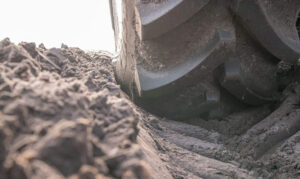
“Our line of VF (Very High Flexion) tyres, which includes the Vredestein Traxion Optimall for modern tractors (33 sizes) and the Vredestein Flotation Optimall for large trailers and implements (9 sizes), offer impressive levels of soil preservation, traction, durability and comfort, making them a popular choice among farmers,” answers Boerkamp. “VF tyres have a more flexible sidewall than standard radial tyres, affording the same load capacity at 30 per cent lower inflation pressure.
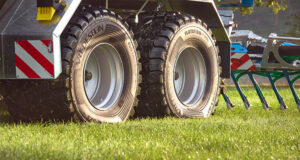
“The VF Flotation Optimall achieves impressive soil preservation performance, which is most important for farmers, outperforming all Flotation tyres on offer today. Last year, the tyre received an ‘exemplarily’ rating by the independent German test institute DLG; it achieved a ground pressure that was 25 per cent lower than other premium VF competitors and 50 per cent less than ‘budget’ VF tyres. This shows that our VF tyres have the potential to save farmers thousands of pounds per year on fuel and help generate higher yields through the preservation of soil.
“For obvious reasons we see VF tyres growing in popularity, and we will continue to invest in the development of new products in this segment.”
Digital technology is often presented as the solution to maximising performance. We see digital technology being developed in the fleet market, where operators get instant feedback on their tyres’ condition and performance. How do you see digital technology impacting upon the agricultural sector?
“Technology has a rapidly growing influence on the farming sector, including how it affects the selection, use and maintenance of tyres,” says Boerkamp. “We see a strong added value for the adoption of tyre sensors in the agricultural market. The sensors can supply real-time information about tyre pressure and temperature, including potential fast deflation. The adoption of tyre sensors can enhance the operational safety and fuel efficiency of machinery by collecting data to provide a holistic view of performance, including optimum inflation pressure, traction and ground condition.
“Sensors can also support the implementation of predictive maintenance approaches which can dramatically reduce operational costs. Thus, the technology can reduce the likelihood of unexpected machine downtime which further optimises the total cost of ownership.”
So, we can look at a highly controlled tyre operation in the future, with digital technology being almost as important as the tyre itself?
“The future of the sector is likely to be shaped by technological advancements, as well as sustainability concerns and evolving practices;” responds Boerkamp. “ We will start to see more IoT (Internet of Things) integration and connected farming, as well as the wider adoption and use of autonomous vehicles. Through Apollo’s global research and development team in the Netherlands, we will continue to produce products that align with the ever-changing industry and ensure that we remain at the forefront of the agricultural tyre sector.”




